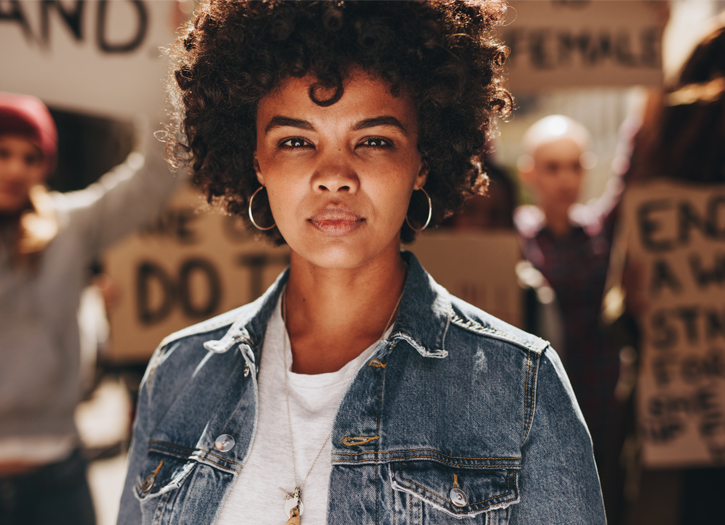For hundreds of years we, as African Americans, have been trying to shine a light on the pain and beauty of black life. We’ve shouted, “Black Lives Matter” and “Black is Beautiful” time and time again. We have cultivated campaigns and reforms to address inequalities in every space, from the entertainment industry to the criminal justice system. We created and donated to funds that sought to help those who lost their livelihoods, and tragically, their lives, unjustly. But even before then, our history has been rooted in forms of protest—from slave rebellions, like Nat Turner’s, and slave literature, like Phyllis Wheatley’s (despite there being laws against black literacy), to interracial love stories on screen (see Island in the Sun with Harry Belafonte), and music that amplified our pain to the masses (cue Strange Fruits by Billie Holiday). Then there were the political wins that came through protest—Brown V. Board was the culmination of courageous lawsuit filings, and most memorably, the Civil Rights Act and the Voting Rights Act were fruits of the blood, sweat and tears shed during the countless marches, boycotts, and sit-ins of the 1950s and 60s.
Now, here we are in the year 2020, and for the first time since we raised our voices hundreds of years ago, it feels like others, outside of our collective own, really hear us. So, what do we do with the newfound enlightenment that our nation, and the world, is seemingly having? We keep raising our voices. We have the opportunity in this moment to freely share our experiences and concerns with our non-black counterparts in a way we never could before, to call out instances of racism, prejudice and discrimination with courage and newfound support. Now, we don’t have to censor or piecemeal our truths, we can share them honestly and fully. So, whether your protest takes the form of spoken word, written word, peaceful marches, or generous donations, do so with the unwavering focus and commitment to the cause—a just society, where all voices and lives matter, equally. And as black women and men— know that your ability to defy the odds, overcome obstacles, and still show up for your family and communities, and have joy in the midst of pain—makes you the embodiment of protest.
Some organizations to know: The Action Pac, Color of Change, Change, and 8 Can’t Wait.







Add Comment
You must be logged in to post a comment.